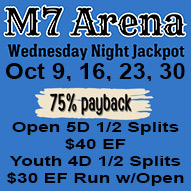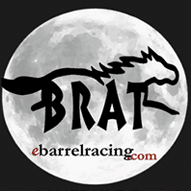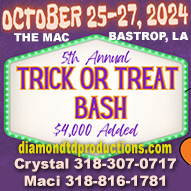FORT WORTH, TEXAS—Ready for a different take on roping, riding and sliding action? Sign up today for the American Paint Horse Association’s next Working Ranch Horse Clinic & Competition. Set to take place Oct. 28–29 at the NRS Training Center in Decatur, Texas, the event will feature trainer Carl McCuistion.
On Saturday, October 28, from 8 a.m. to 4 p.m., McCuistion will be on hand to teach both horse and rider basic-to-advanced Working Ranch Horse skills.
“We’re trying to reach a segment of our industry that we’ve felt hasn’t been reached at this point—and that’s the working cowboy,†said APHA Executive Committee member Carl Thurow, who was instrumental in the contest’s development.
The two-day event will feature four classes:
• Stock Horse Pleasure—Contestants must walk, trot and lope horses
smoothly and efficiently on a designated course.
• Stock Horse Versatility—Horses perform some of the many tasks required of them in the course of actual ranch work. For example, they may be asked to walk over bridges, walk through brush, back into confined spaces, jump over obstacles or drag hay bales.
• Working Stock Horse—Participants demonstrate the skill and athleticism necessary to move cattle to specific areas while on horseback. Roping may be performed in this class.
• Stock Horse Reining—Horses must show they can be willingly guided and ridden through specific patterns.
Participants may enter the clinic and any of the four events. Winners will receive cash and prizes.
“These events showcase a well-trained, all-around horse,†said Tom Neel, who rode Paint stallion Delta Flyer Gold Bar to the Open title at the last two Texas competitions. “The horse needs to be relaxed enough for the pleasure, guide well enough for the trail and reining, and have the desire to work cattle for the stock horse class.â€
More about the classes
Working Ranch Horse events differ from usual show classes, which are commonly held in an arena and have standardized routines for contestants. The Stock Horse Versatility class, for example, includes an outdoor trail course that incorporates natural terrain into the obstacles.
Another departure from standard classes is the Working Stock Horse event, which gives contestants a choice to control a cow by guiding it in circles in the middle of the arena, as in a working cow horse event, or by roping it. Thurow said the non-roping option was allowed in this event because roping is a skill that many capable riders haven’t had the opportunity to learn. The ompetition’s creators didn’t want riders intimidated and avoiding the event because of one
part of the class.
The classes do, however, encourage many aspects of usual show classes, giving competitors incentive to polish their riding abilities. Judges in the Stock Horse Reining event, for example, look for several of the skills found in a typical reining class.
“This event might be one of the hardest for the competitors,†said Thurow. “In a days’ work, ranch horses don’t do many spins or sliding stops.â€
Thurow feels that the extra horsemanship the contest requires can only benefit competitors in their other endeavors.
For more information
To learn more about APHA Ranch Horse competitions visit apha.com/
ranchhorse . For further information, phone (817) 834-2742, extension 249, or e-mail [email protected] .





